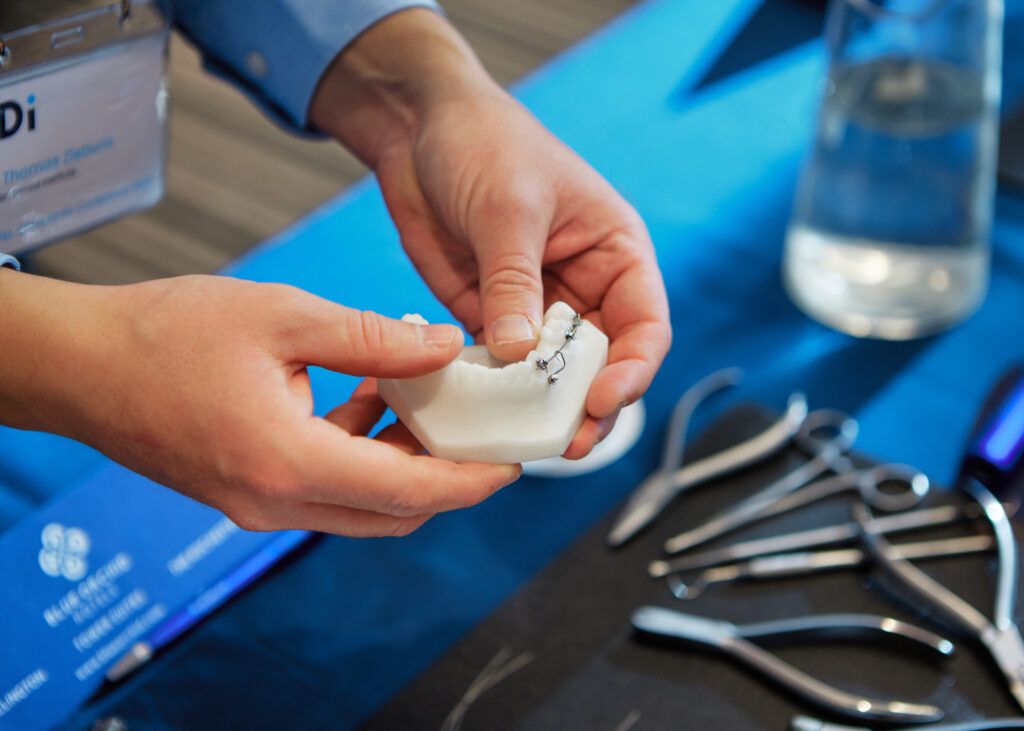In a world that has become increasingly more competitive, especially in a field such as dentistry, it is more important than ever to offer employees and clients a place to thrive.

Not only do dental practices need to provide clients with a place to feel safe and valued as customers, but employees do, too. Practice owners need to create positive and safe environments in which to work.
This blog will delve into Simon Sinek’s book “Leaders Eat Last” to explore how the success or failure of any organisation is based on leadership excellence rather than simple “managerial acumen.”
So, What are the Attributes of a Good Leader?
Whilst many key skills are similar and transferable to those of a leader, managing a team of people is very different from leading them. Managing people concerns coordination and organisation, while managers focus more on short-term gains.
In Sinek’s book, his vision is simple: help people understand that an organisation’s success or failure is based on a leader’s abilities, not the manager’s skills. So, what is a leader?
American diplomat and lawyer John Quincy Adams once said, “If your actions inspire others to dream more, learn more, do more, and become more, you are a leader.”
According to Sinek:
- A good leader makes their staff feel safe
- A good leader determines and embodies the culture and values of their organisation
- A good leader acts with integrity and creates bonds with the people they work
- A good leader puts the needs of others before their own…they eat last, so to speak

How to be an Excellent Leader in a Dental Practice
Following Sinek’s characteristics of a leader, it can be helpful to understand how to become an effective leader in a dental practice. The following three methods are crucial to fostering high work standards and exceptional client care.
Build a Positive Culture
A positive workplace culture is one where there is a sense of community and care at work.
For Sinek, culture is not a list of qualities or nouns; it is more about the verbs. Sinek says, ‘True values are how you act when you are at your natural best.’ A culture based on verb-based values holds you accountable and can be measurable.
In your dental practice, like any place of work, all team members need to feel safe, valued, and part of a cohesive unit. This is a fundamental human need and critical for any dental practice to work in a motivated, fulfilled fashion.
How do you go about creating a positive culture? Make people feel noticed. Open communication with all your staff members is an excellent way of achieving this. It makes them feel protected and valued.
Praise should be given to the person who has performed well as soon as possible—but only when it is deserved. Praise is a leader’s most powerful tool to encourage and motivate people.
Open communication is the key to a positive culture. Talk through your staff’s mistakes at the moment and remind them that mistakes are the learning blocks of success. Establish a strong team dynamic by creating a sense of belonging and mutual respect. Hold regular team meetings where everyone can share their ideas and concerns.
Advance your career by studying for a world-leading postgraduate diploma
Study at the cutting-edge of dental research with curricula taught by global experts and an online schedule that suits you.
Prioritise Patient Care
Sinek believes that the best leaders follow a more significant cause: they see themselves in service to something else. Prioritising patient care is that ‘bigger cause’. Commit to providing empathy, compassion, and personalised care to your patients instead of focusing on the income generation. Excellent patient care increases patient satisfaction, loyalty, and positive word-of-mouth referrals.
Lead by Example
Establishing the practice’s values, creating a safe and positive work environment, and prioritising the patient first are already steps in the right direction.
It is equally important to prioritise your team’s well-being. Leaders who care for their team through a supportive work environment often have the most productive outputs. Treat them the way you would want to be treated.
For Sinak, even the smallest gestures can make the most significant difference. When you take on a menial task, offer to shoulder a burden or model consistency, you are demonstrating leadership.

Final Thoughts
Being a leader is all about inspiring others to act or behave in a certain way for a specific or common goal. Being a leader of a dental practice that provides the employees with a safe, positive, and encouraging environment in which to grow and develop leads to loyal and happy customers.
Dental practices with excellent patient satisfaction will attract the best dental practitioners and foster high work standards, leading to exceptional patient care and loyal customers. In this way, good leadership leads to a virtuous cycle.
By creating a Circle of Safety, fostering team collaboration, and leading by example, you will enhance your team’s performance and patient satisfaction and loyalty, thereby enhancing the long-term success of your dental practice.
Get Our Industry Round-Ups in Your Inbox
Each month, we publish bitesize summaries of important business scholarship and thought leadership to help you build your skills as a professional.
Join our mailing list below for our updates delivered to your inbox.



